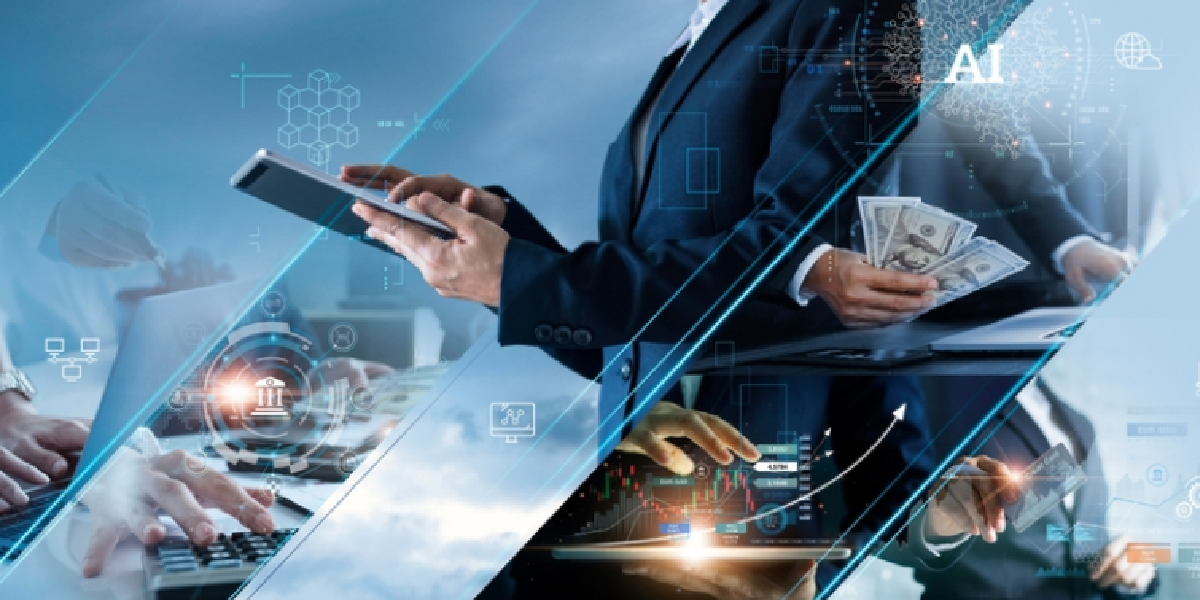Imagine a world where every percentage of brain capacity we unlock brings us closer to a future as limitless as the one Lucy experienced in Luc Besson's visionary sci-fi film. Now, replace 'brain capacity' with 'AI potential,' and you have a glimpse into the business landscape of 2025.
But what does this mean for the cornerstones of our current business world? How will AI reshape traditional domains like marketing, customer service, and workplace culture? Will certain industries become obsolete in the wake of AI's advancement? And how will the integration of AI into every aspect of business life redefine the way we work, collaborate, and innovate?
Dive into this blog to explore these questions and unveil the business landscape of 2025, a world where AI is not just a tool but a transformational force.
AI Makes Traditional Marketing Obsolete
In 2025, traditional marketing strategies find themselves in the rearview mirror, overtaken by the lightning-fast, hyper-efficient world of AI-driven analytics and automated content creation. The marketing campaigns of yesteryear, which relied on broad demographic targeting and gut-instinct creativity, now seem quaint compared to the precision and adaptability of AI.
Picture a world where AI algorithms predict customer preferences with eerie accuracy, creating tailor-made content that resonates on a deeply personal level. This AI isn't just predicting trends; it's setting them. Marketing becomes a real-time, adaptive conversation between businesses and consumers, mediated by AI that understands individual needs and desires better than any human marketer could.
Data Analysis Becomes Instantaneous
Data, the lifeblood of modern business, undergoes a transformative shift. The days of laborious data analysis and time-consuming trend prediction are gone, replaced by AI systems capable of sifting through petabytes of data in the blink of an eye. Real-time data analysis isn't just a buzzword; it's the new normal. Businesses equipped with AI can make informed decisions at unprecedented speeds, adapting to market changes almost instantaneously. This isn't just about speed; it's about the agility and accuracy that come from having the world's best data.
Every Employee Gets an AI Assistant
The workplace of 2025 has undergone a seismic shift, primarily due to the universal adoption of personal AI assistants. These aren't just tools; they're transformative partners that redefine productivity and creativity in the workplace. With advancements inspired by platforms like ChatGPT, these AI assistants are tailored to individual needs, ensuring that every task, no matter how small, is optimized for efficiency and accuracy.
Remote Work Transcends Physical Boundaries
In 2025, the concept of remote work transcends its current limitations, evolving into a sophisticated blend of AI, the Metaverse, VR, and AR. This new era of remote work is defined by immersive virtual environments where geographical distances become irrelevant.
In this transformed landscape, AI-powered virtual workspaces, like those in the Metaverse, offer a collaborative and interactive experience that rivals physical offices.
VR and AR technologies provide an enhanced level of realism and engagement, making virtual meetings and teamwork more effective and lifelike. This revolution in remote work enables companies to access a global talent pool, promoting diversity and inclusivity while also aligning with sustainability goals by reducing the need for physical office spaces and commuting.
The future of work is not just about where we work, but how we work. The AI-enhanced virtual world reimagines the workplace, creating a more inclusive, efficient, and sustainable way of working.
The Rise of 'AI Enablement' in Startups
In the dynamic business landscape of 2025, startups are keenly focused on 'AI enablement' as a cornerstone for success. The startup culture, once mired in traditional methodologies, has rapidly evolved to prioritize AI integration in every aspect of operation. AI is no longer just an add-on; it's the powerhouse driving startups to solve significant business challenges.
Every forward-thinking startup is now racing to update its strategies and operations with AI. The reason is clear: AI's capability to dissect complex problems, offer innovative solutions, and streamline operations is unparalleled. In this era, a startup not leveraging AI is akin to a ship sailing without a compass – directionless and destined for obsolescence.
The New Norm: AI Productivity in the Workplace
In 2025, the concept of 'AI productivity' dominates the workplace. It's a competitive landscape where employers and employees alike are measured by their proficiency in leveraging AI tools. The notion of tackling professional tasks without AI's assistance is not just outdated; it's unimaginable.
AI proficiency has become a critical skill across all industries, prominently featured in job descriptions and performance metrics. Employers seek individuals who are not just familiar with AI but can creatively harness its capabilities to drive innovation and efficiency. In this environment, being adept at AI is not just an advantage – it's a necessity to stay relevant and competitive.
In this AI-dominated era, the workplace buzzes with a new kind of energy – one that's powered by the symbiotic relationship between human ingenuity and AI's analytical prowess. The mantra is clear: those who master AI, master the future.
Embracing the AI-Transformed Future
As we stand in 2025, it's evident that AI has not just reshaped the business landscape; it has redefined it. From startups to global corporations, the integration of AI has unlocked new levels of innovation, efficiency, and sustainability. The future we envisioned is now our reality, a world where AI is the catalyst for unprecedented growth and collaboration. Embracing this AI-transformed future is no longer a choice but a necessity for those who aspire to lead in the new era of business.

